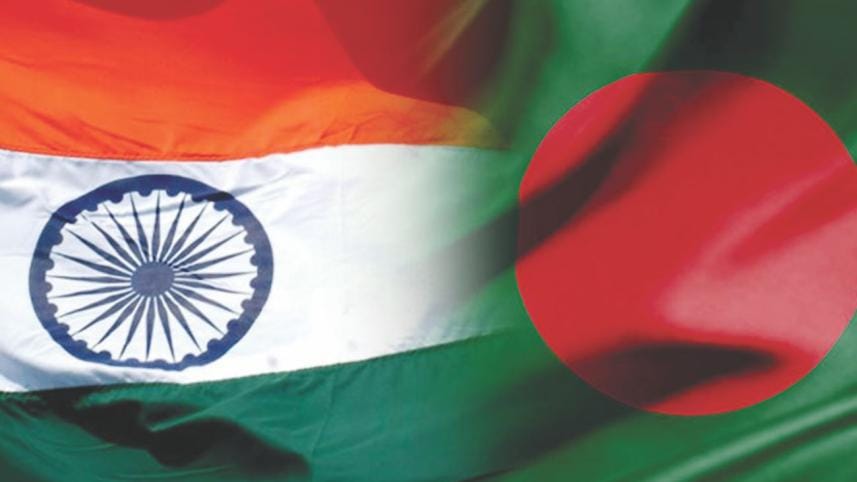Balancing strategic friendship

The two-day official visit of India's Defence Minister Manohar Parrikar to Bangladesh has drawn understandable attention in the media and of political analysts alike for more reasons than one. First, this was the first ever visit by an Indian Defence Minister to Bangladesh. Second, the visit has created the potential for a quantum upgrading of defence cooperation between the two South Asian neighbours whose relations have a historic dimension of its own. Last, but not least, the visit took place shortly after the procurement of two submarines for the Bangladesh Navy from China in mid-November and the high profile visit of China's President Xi Jinping to Dhaka in October.
Whether the timing of Mr. Parrikar's Dhaka visit had anything to do with the submarine procurement or President Jinping's visit earlier is a matter of conjecture; it could very well be a coincidence. However, since Bangladesh took delivery of Chinese submarines on November 14, some analysts in India have expressed concerns over a deepening of China's footprint in India's immediate neighbourhood. Retired Indian Navy Admiral Arun Prakash believes this transfer "is a step further in China's strategy of encircling India with its client states." He goes on to say, "Submarines are offensive weapons of sea denial and their only use would be to pose a threat for India and to complicate the latter's maritime security paradigm." However, Bharat Karnad, a research professor at the India-based think tank Centre for Policy Research, disagrees. "It is just a good economic deal that Dhaka could not pass up," believes Professor Kanrad. Given the prevailing nature of Indo-Bangladesh bilateral relations, the retired Admiral's view appears far stretched while that of Professor Kanrad seems like a more accurate reflection of the state of play.
Objectively speaking, Bangladesh's acquisition of two refurbished Ming-class submarines need not be viewed through this narrow geopolitical prism. It should instead be seen in the broader context of the country's force modernisation, which has important positive security implications for the Bay of Bengal rather than being a potential threat to regional stability.
At the same time that Bangladesh is augmenting its naval capabilities, it is increasing its contributions to maritime security in the Bay of Bengal and beyond. Since 2010, it has deployed two ships to the UN Maritime Task Force of Lebanon. Moreover, having long been a recipient of disaster relief operations, Bangladesh now seeks to become a provider. In the past three years, the Bangladesh Navy has delivered relief to Sri Lanka after deadly landslides in May, to Maldives after a water crisis in 2014, and to the Philippines after Typhoon Haiyan in 2013. Besides, Bangladesh Navy and Air Force were used for providing much needed airlifted relief and medical supplies to Sri Lanka and Maldives after the 2004 tsunami. By upgrading its capabilities, Bangladesh also seeks to enhance its relevance and role in advancing international maritime institutions like the Indian Ocean Naval Symposium (IONS). These are all positive developments.
Unlike conventional defence cooperation arrangements that Bangladesh has built over the years with other countries, the one with India is fundamentally different. It has its roots in the very birth of the nation when the Indian military fought shoulder to shoulder with Bangladeshi freedom fighters against a common enemy, shed blood and sacrificed lives. More than 1,600 members of the Indian Armed Forces were martyred during the final stages of our glorious Liberation War. The Bangladesh Prime Minister will formally honour these martyrs during her upcoming official visit to India. Mr. Parrikar made a poignant reference to that part of our shared history in his remarks at the official banquet hosted in his honour. He also underlined that his visit would contribute to further the growing defence ties between the two countries. In his interactions with Bangladesh defence and security-related officials at different levels, details of such cooperation were spelt out.
As it is, exchange of visits at the highest levels of the Armed Forces of the two countries has helped strengthen ties and remove doubts. An Indian Naval training ship has visited Chittagong recently. The sixth edition of the Bangladesh-India joint military exercise "Sampriti" has just concluded in Tangail. This is an annual exercise with the focus on counter-terrorism and boosting interoperability between the two armies. "Regular naval and air force exercises will also be on the agenda now," said a source. India, on its part, has actively worked towards bolstering ties with Bangladesh in recent years, with one of the main objectives being the need for the two to 'resolutely' tackle terrorism together. India has also been holding direct army-to-army staff talks with Bangladesh since 2009. The importance of the talks can be gauged from the fact that India has similar staff talks with just a handful of countries, which include the US, UK, France, Japan, Australia, Malaysia, Indonesia and Singapore.
It is in this larger context that the Indian Defence Minister's visit needs to be viewed. Its significance lies in the fact that it has created the potential for enhanced military and security cooperation between Bangladesh and India and broadening them without negatively impacting Bangladesh's ongoing defence links with others, especially China. It is therefore credit to Bangladesh that it can balance the interests of India and China and take decisions that are ultimately in the interest of Bangladesh.
The writer is a decorated Freedom Fighter and former Foreign Secretary of Bangladesh.




 For all latest news, follow The Daily Star's Google News channel.
For all latest news, follow The Daily Star's Google News channel.
Comments